Bakerwal Children Still Struggle for Education
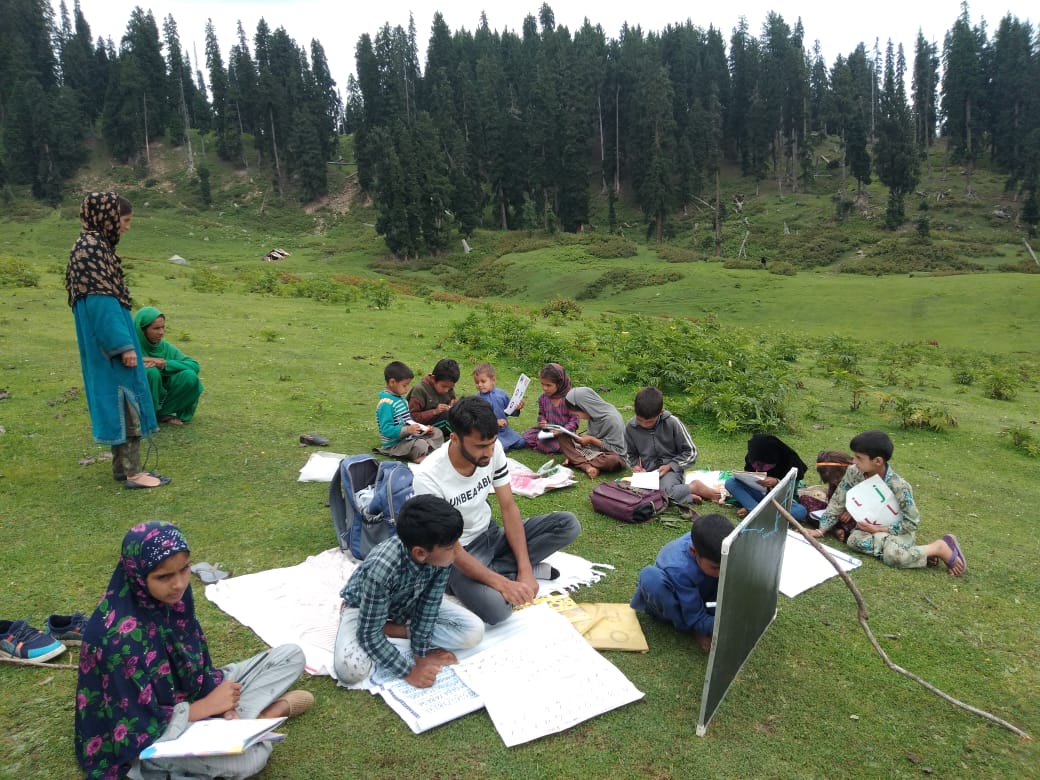
Shaizan Nadaf and Kaisar Ali/ TwoCircles.net
Aashiq Hussain Chopan, 14, and seven other children in tattered clothes sit on a mat under open sky while a government teacher instructs them in Doodhpathri, which is located at an elevation of 2,730 metres and 42 kilometres from Srinagar in Kashmir.
Chopan, a fifth-grade student who barely understands any written alphabet, says he aspires to be a doctor and help his community --- the Bakerwals, a nomadic tribe who speak the Gojri language and live in the mountainous region of Jammu and Kashmir. They are the region's largest tribe, with a population of 1.5 million people, accounting for 11.9 percent of the overall population.
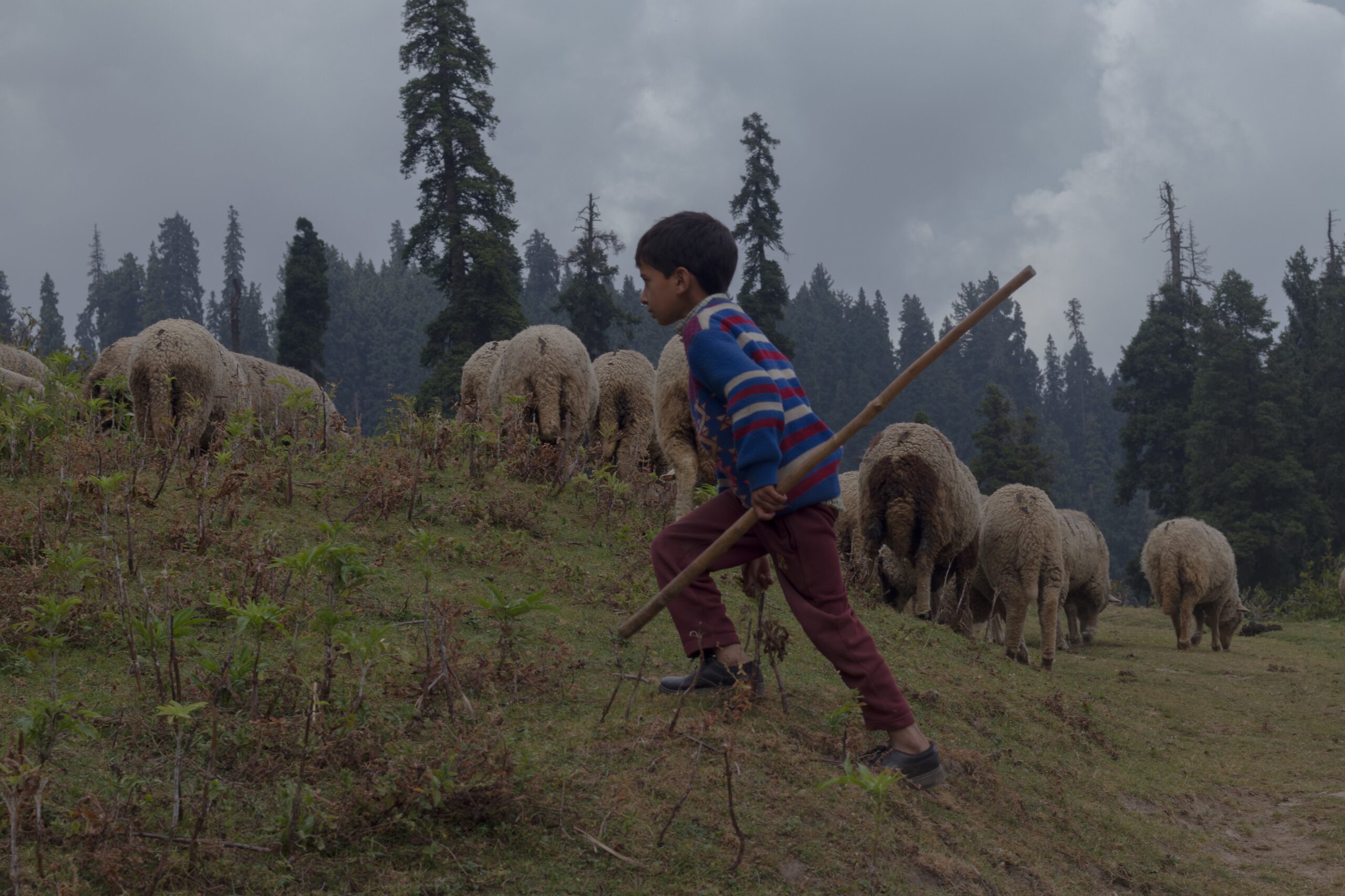 Aashiq from the Nomadic tribe spending his time with sheep folk in
Aashiq from the Nomadic tribe spending his time with sheep folk inthe mountains of Doodhpathri. ( Photo : Kaiser Ali )[/caption]
They live in tents and huts that they routinely relocate with their herds to higher pastures during the warmer months and lower valleys during the winter, which means that Bakerwal children like Chopan drop out of school for roughly six months each year.
As a result, Bakerwal children rely on temporary mobile schools for their education, only receiving instruction for six months a year.
Thus, the community suffers from low literacy rates. According to the 2011 census, the literacy rate among Jammu and Kashmir's tribal communities is 55.6 percent, well below the national average of 74 percent.
The Shaikh Abdullah government established mobile schools in 1970. These mobile schools were affected by the militancy, with many closing in the 1990s and only reopening in the early 2000s.
However, parents of children attending these schools told Two Circles that the education at these mobile schooling is not on par with private or permanent government schools.
Ghulam Mohideen, 57, a father of three from Doodhpathri in Budgam district, laments the state of education of Bakerwal children.
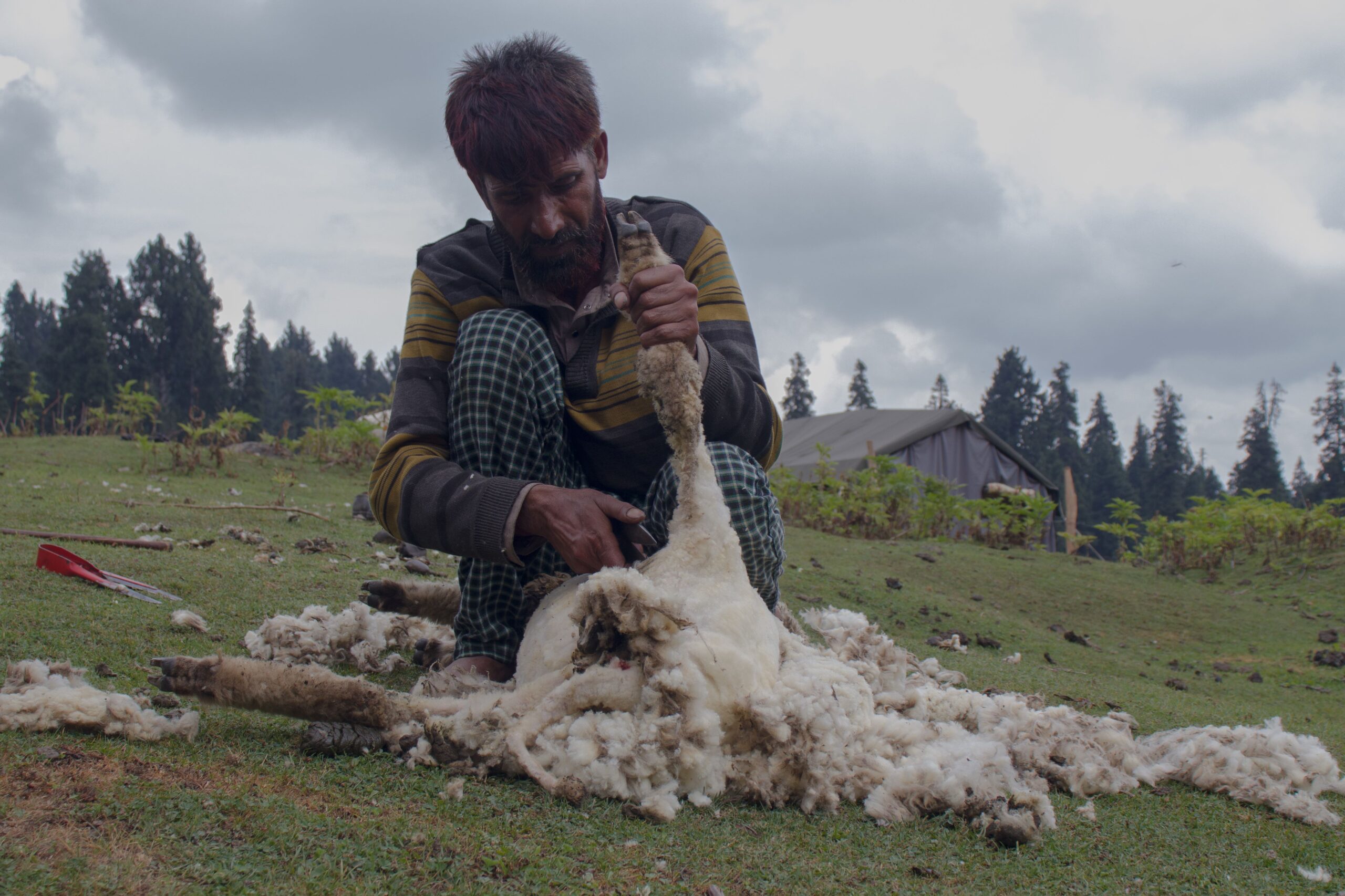 Ghulam Mohammad 54 shearing their sheep next to a mobile school area of Doodhpathri as
Ghulam Mohammad 54 shearing their sheep next to a mobile school area of Doodhpathri asthey are preparing to go back to the plains. ( Photo : Kaiser Ali )[/caption]
"Who would think that my children would remain uneducated in this digital age," Mohideen says with a sigh.
Mohideen feels that mobile schools are vital, but they are plagued by a lack of infrastructure.
Shazia Chowdhury, a tribal activist who has been championing for Gujjar-Bakerwal education, told Two Circles that Bakerwal children are less interested attracted to education due to a lack of infrastructure.
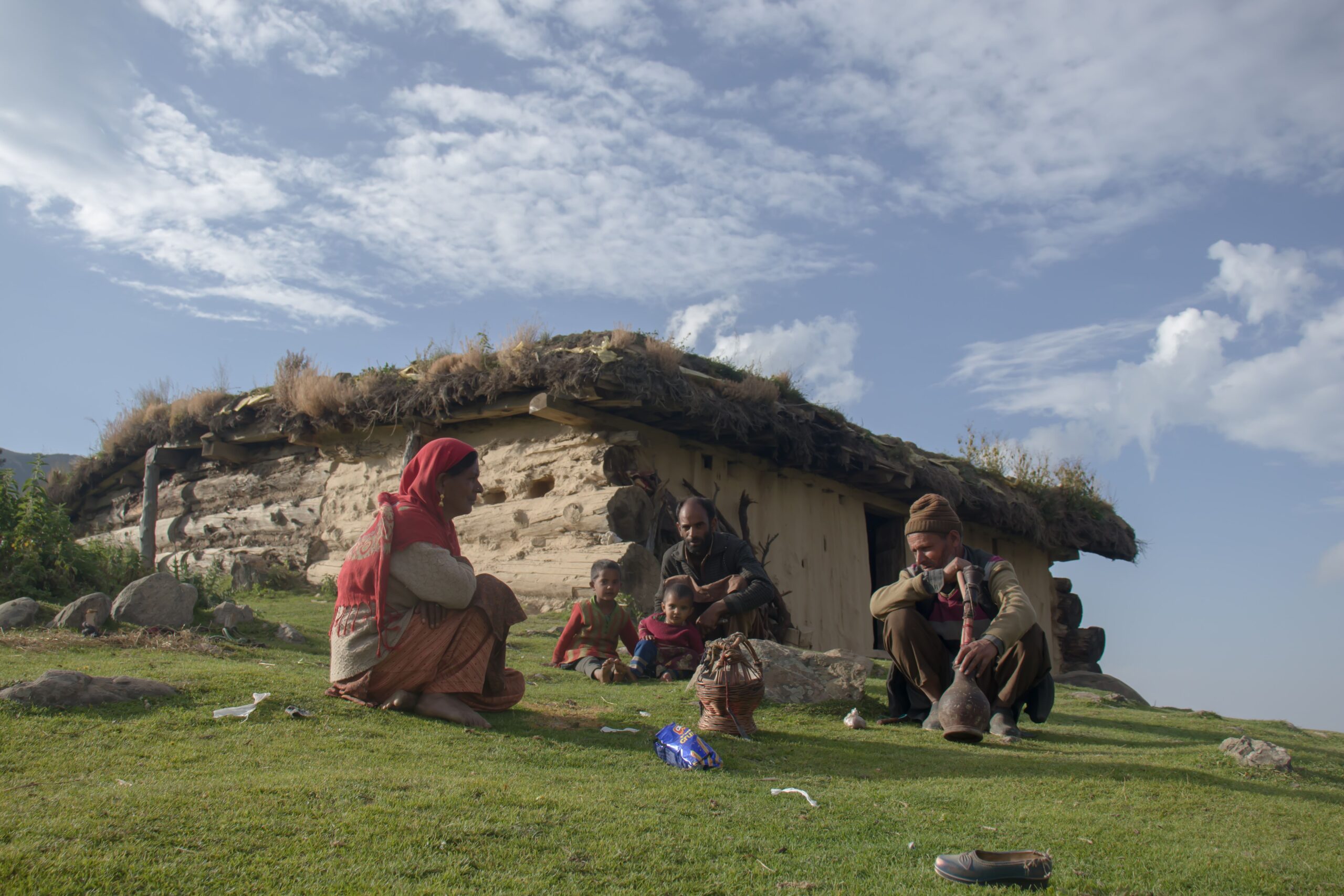 A tribal family seated outside their mud house in meadows in Doodhpathri Situated at an
A tribal family seated outside their mud house in meadows in Doodhpathri Situated at analtitude of 2,730 metres (8,960 ft) from sea level, it is located at a distance of 42 km (26 mi)
from Jammu and Kashmir's Srinagar.
(Photo : Kaiser Ali )[/caption]
"The government also has a responsibility to provide infrastructure at these mobile schools, so children should be motivated to go to schools and there be no barriers to them. They [Bakerwal] children are being ignored, no one is looking for their future, which is very unfortunate," she remarked.
In addition to the lack of infrastructure, enrolment in these mobile schools is significantly lower than what is anticipated since abject poverty necessitates Bakerwal children to assist their family in grass-cutting for the animals in the summer months in the highlands from July to October.
According to the Economic Survey of Jammu and Kashmir, 2020, more than 42% of Scheduled Tribes live below the poverty line.
Teachers assigned to these high-altitude, isolated mobile schools must hike several kilometers every day for six months, from May to October, to teach children and the schools are open from 10 a.m. to 4 p.m. Each school is headed by two teachers.
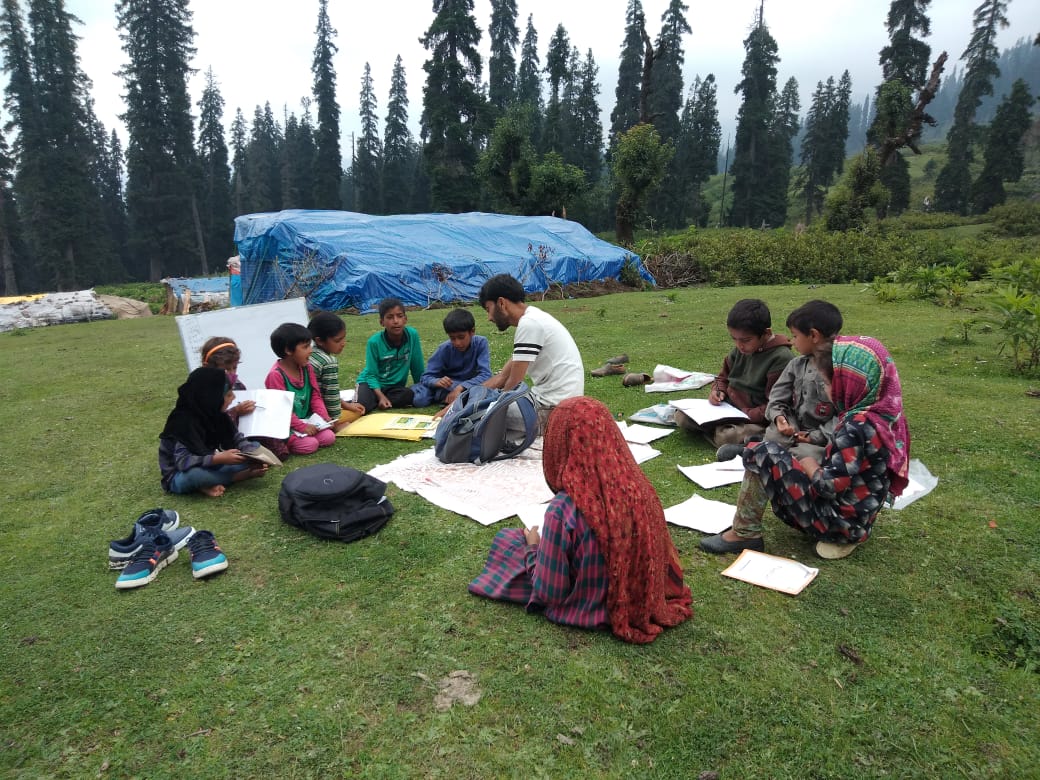 Children from the Bakerwal community in their mobile school[/caption]
Children from the Bakerwal community in their mobile school[/caption]
Khazer Mohammad, 35, a teacher, who has been trekking to a mobile school in Doodhpathri, Budgam for the last six years, says that even though it is difficult to convince many parents to send their children to these schools, they are making progress.
Many parents interviewed by Two Circles said their children do not receive midday meals, scholarships, or uniforms like students in permanent government schools. The government should provide these things to students in order to push them to study, say parents.
"We come from poor families. We are unable to make everything available for them uniforms or other things," he added on the condition of anonymity.
However, Mohammad claims that teachers are paid only INR 10,000 per month, making ends meet difficult and not comparable with the level of physical labour they must perform every day, hiking several kilometers.
"We are only here for a period of six months, and for the remainder of the period, we go jobless. We then have to search for any other work," Mohammad added.
Shaizan Nadaf and Kaisar Ali are independent reporters based in Kashmir, India.
